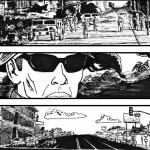One picture. This is all I have to prove my dad and I ever spent time together.
He looked like a young Larry Hagman, and was wearing a fishing hat like Col. Blake. I’m about five, sitting on his lap, on a rock outcropping above the stream at Looking Glass Falls up in the mountains of North Carolina, sun-dappled trees around us, all very Rockwell and idyllic.
He seems to be teaching me how to fish. I don’t know what he was whispering in my ear. Possibly fatherly advice on patience, to wait for the fish to bite. If my adult life is any indication, I wasn’t listening.
He took me hunting too, but I didn’t like getting up at 6 am on a Saturday to go out to a stinking, cold marsh to shoot ducks. But the fish didn’t have to be so stupid as to bite. It’s all I remember enjoying with my father, and we did almost nothing except float on a river. There was always a gun rack on the wall when Mom and Dad were still together, but I never cared for shooting. He was used to it, having been a lieutenant in Vietnam, in 1968.
His father had been too short to make it into the armed forces, even for World War Two. So he pushed my father to make him proud, first by going to the Citadel, then volunteering for the Army. After living in bases in Washington, DC, and Seattle, he was sent overseas shortly after I was conceived. Because of his education, he went in as a lieutenant, not usually a popular rank there, but he was good to his men and they loved him. One such incident, which he’d told me about and which, after his death, his former CO Col. David Hackworth wrote about in his memoir ABOUT FACE, was a firefight in which friendly shrapnel severed his middle finger. It might have been saved had he not refused all medical care, including morphine, till he knew his men were safe, during which time the finger was lost. This was the injury that sent him home.
Another he’d told me about was a seemingly friendly town his unit passed through after a long, hot march. The locals welcomed them, and one gave him an ice-cold bottle of Coke. He said he drank it so fast he felt like his throat was scorched. But just a short walk out of the village, someone tripped a wire, and a sharp explosion sent him flying into a tree, the back pain afterward always with him. Dazed, he felt something wet and heavy in his lap. This was most of his best friend’s head.
When he came home and I saw him the first time, I’m told, I screamed, and did not stop for some minutes. His trauma in Vietnam had left him with anxiety attacks whenever he heard loud noises, and he had one right then and there. With positions reversed, this set the tone for much of our relationship from then on.
Being a Vietnam vet, plus your degree being in English, were not helpful to getting a job in the early seventies, but in Charleston, being a Citadel alumnus always counts for something, and his fellow grad and best friend kept him in a secure job in his bank much of my early childhood. I remember that time as fairly quiet, and mostly remember first reading comics; golden age tabloid-sized reprints and SHAZAM!
But he thought he could better himself with what passed then for a GI Bill, and moved us upstate to Clemson to learn to be a veterinarian. But his allergy to cats, and that he had no knack for medicine of any kind, sent us back to Charleston after about a year, or rather near it, nineteen inexpensive acres of pasture with a house on tiny John’s Island.
There was a recession and only my mother was keeping us solvent, thanks to her father, who’d died of a sudden heart attack in the street before they were even married, insisting she become a registered nurse so that she would always be employed, and have her own income. He could only manage, at first, working in the stables of the Charleston Carriage Company, but this allowed him to get two cheap, but good, horses. My mother loved horses. It was his way of thanking her, this small-scale pastoral fantasy out on the island.
But this also cost me having any friends. I could have gone to public school nearby, but that was mostly African-American and, unfortunately, my parents were Southerners of their time who’d spent half their lives under segregation, and feared awful things happening to their boy. So instead they spent money, which they could not afford, to pay tuition at a nearly all-white private school in Mount Pleasant, eighteen miles’ daily commute from where I lived. I could never hang out with anyone after school, and never made friends. I was the only relatively poor kid in a school full of rich ones, and most of their fathers seemed to be on first-golf terms with the headmaster. I spent most of my five years there being taunted and beaten up, then sent to detention for complaining. Such horror they’d spared me with their bigoted caution.
I remember spending a lot of lunchtimes hiding under the outside bench that was furthest back.
I had no friends anywhere near, so I read a lot, watched monster movies, and drew. Dad was sure this was why I was picked on, and so discouraged it. Once I saw the word “quantum” in a comic and asked him what he meant. He replied a boy my age should be more concerned with what a fullback is. Dad wanted me to be like other boys, or rather, like his friends’ boys, who were all athletic, and liked hunting. Once to make him happy I lied and said I’d joined the soccer team. But I never seemed to have games or practice. But he pushed me, like my mother whom he wouldn’t allow to wear blue jeans, to fit in. So his friends would see he was the right kind of man for a good career, and would help him. And he was willing to use force.
He struck me easily. Also my mother, but that was hidden till my mother told me long after he died. Sometimes he’d turn around his Citadel class ring and clap his palm down on my head. But that was more his idea of a joke. One of his attempts to fit in was taking us regularly to church, something more occasional before. I was used to being asleep that early on a Sunday, and dozed off, as did my sister. When we got home, my sister got a good talking to. I took my pants down and was whipped ten times with my dad’s belt. After, he told me how I embarrassed him.
He did this more and more often afterward. For a period I set up pillows and a small TV my grandma had given me in my bedroom closet, so I wouldn’t be afraid every time he passed my door.
I had no friends, so I didn’t miss them when I spent almost every summer at my grandma’s old two-story house in Kingstree. I just read a lot of comics from a dusty, dark old newsstand shop on the town’s one main street, went swimming in the Black River, ate a lot of chicken, and knew for a little while no one would hit me.
The last summer I was there, I had to stay a few weeks longer than normal. I wasn’t told then it was because my father had started having bipolar episodes made worse by his PTSD, and had tried to kill himself. He was under observation for two weeks. My mom stuck with him, right up to December, when he announced to her he no longer loved her, and was leaving. When he told us, I wept and begged him to stay. But he was in a hurry to pull off this Band-Aid. An ice storm was just beginning. He left after I fell asleep, never saying goodbye.
A month later he called my mother and asked her to come over and talk. When she got there, she found him on the bathroom floor, overdosed on vodka and the lithium they’d prescribed him. He’d timed it right and she saved him. Lucky for him she was a nurse, and forgiving.
For a few months they were back together, but then a blonde at work caught his eye and he left for good. When he told me and my sister it was really over, on a ride home from school over the Cooper River Bridge, he said, “You’re free to hate me.”
So I did.
Though I visited for a while on weekends, once he remarried I tried to avoid him. Not least because of how he bragged about his new athletic stepson and how I should be more like him. The fact this same guy beat me up in school I was supposed to look past.
And his new wife, who drank, and grated, trying too hard to replace my mom, even trying to push him into a custody battle, which they lost. Our contact dwindled down to McDonald’s once a week, then holidays, and then nothing.
Without him there, and finally in public school among normal kids because that’s what we could afford, I made friends, and books in the school library by Dick Giordano and John Adkins Richardson got me interested in becoming a comics artist. But I knew I couldn’t buy the tools they listed.
One Christmas Dad bought me a drawing table and, for some reason, an airbrush. The table was rickety, but big and professional. And it was my first. This was the only time he ever encouraged anything I actually wanted to do to my face. But he often used things instead of words for that.
Dad had wanted to be an artist. His sketches of faces covered the endpapers of all his college textbooks in the attic. But he stopped. It wouldn’t help him fit in.
Shortly before his death, after his second wife had left him, he was talking to my mother more, and one day she told him she was worried about my interest in the arts, both drawing and, by then, acting, that I needed to be pushed to something more practical.
He told her, “Don’t make him regret what he could have done with his life.” Like his dad had done.
Nothing like anything he ever said to my face.
But he was reflective then. His new, wonderful family had left him. His jock stepson, in fact, had shown him the problem with athletic sons: they can hit back. He was alone at Christmastime and that’s when all the demons of chemical imbalance came out to play. The drink didn’t help.
* * *
Around this time I started seeing a therapist, mostly talking about my father. Meanwhile, my mother and I argued often. I don’t remember what it was about. But neither of us ever went out anywhere and we simply got on each other’s nerves. (I may be the only kid who was never given a curfew.) She had dated a couple of times but stopped. Even a few years after he died she never fell out of love with him. She had learned guitar to join the church choir, simply to have something to do. This particular night the shouting became very nasty, and Mom could get very cruel when angry, which is a family trait. I didn’t want to listen anymore. I tried to get away from her, to the stairs, to my room above the garage I’d specifically taken to avoid my family. But she wasn’t done, and tried to block me as I lunged. She lost her footing and hit her head on the floor, setting off a grand mal epileptic seizure, which was also odd because she usually got the kind where you merely blink out. As my mother convulsed and foamed, and my sister ran to help her, I just ran away upstairs, not knowing what to do, terrified, stupid.
The seizure soon faded, but my mother was furious and wanted me taught a lesson. Knowing how afraid I was of my father hitting me, she’d often use calling him over as a threat to stop arguments. This time, she’d done it. His Cherokee was in the driveway and I had to get in for a talk.
The first thing he told me was I was not to speak, or he’d hit me.
The second was that I was not to touch, or speak to, my sister or mother again. This was a bizarre request, and I wanted to ask him just what he thought had happened. But he hit me on the thigh when I started to speak. My skin went red.
He kept on talking but I was no longer hearing anything he said. His face was in perfect focus in my sight, and everything else around became a tunneled blur; couldn’t even think through the steam of so many years of helplessness building into a huge, hot crimson FUCK YOU.
Because then I realized, who is he to me? He doesn’t even live here. He’ll go away after. I don’t have to let him hit me. I could just walk away. Why should I be scared? I just hate him.
I want to be done.
My heart was nearly ready to burst from my mouth, my tremors so hard to conceal. Then he finished by pulling out his checkbook in disgust and actually saying, “And your hair’s too long. Get it cut. I’ll pay for it.”
As he started to write his check, I opened the door, put one foot on the pavement and sneered, “Oh, will you.”
I never saw him so shocked. “WHAT did you say?”
“Go to hell,” I replied, slammed the car door in his face, and marched back into the house. So many things I wanted to say to him but then I realized, I didn’t have to. Just get away. Slam the door. Lock it. Done.
Only then did my knees become thin air. Only then did I collapse to the ground. And then in a flood of its own accord came the scream, “I HOPE HE TRIES TO KILL HIMSELF AGAIN BUT THIS TIME GETS IT RIGHT!”
I didn’t mean it before, or after, I said it. But as I said it, I’d never meant anything more.
I never knew if he’d still been in the driveway, or been behind the door. I didn’t know if he heard me. I didn’t want him to, but also didn’t care if he did. I was done with him.
* * *
A week later, after attending funerals for two of my friends’ fathers who’d died for different reasons (heart attack, old age), my mother called me down from upstairs. Full of dread I came down, as always asking, “What did I do?” She was on her knees on the living room carpet with my sister, holding her close, both weeping. Dad had killed himself. They beckoned me to join them in mourning. I ran to the garage, got on my bicycle, and just rode off into the dark till my legs hurt too much to go on. I had to be alone. I didn’t want to be forced into pretending I felt anything but shock.
He was found blue by his friends two days after an overdose of vodka with lithium, with his new puppy yapping, terrified, over the body. This time he’d made sure no one would find him in time. The only note he left was scribbled to his best friend in the back of his checkbook, saying who to give his car and his boat to, ending with “Sorry, buddy.”
At the wake they let me be alone with the body for ten minutes. Once the doors were shut, I rained curses upon his corpse for what he’d done. I beat his lifeless chest with my fists. He’d once tried to teach me how to punch by having me practice on his stomach. But I could feel the hard, cold pulselessness of this thing that wasn’t him. He wasn’t here. And he was gone, and I was not sorry.
I felt lighter, if anything, like something was finally out of my way. Like a threat was finally gone. It was over. But I wondered if this was perverse. I wasn’t sure what you were supposed to be feeling when your dad has died when you never really liked him, but I worried I was wrong to feel relief.
A few days later my therapist said I should be careful. “One of the worst things about being the child of a suicide,” he helpfully explained, “is that, when things get tough, there’s that example that makes it thinkable.”
That hadn’t occurred to me. I’ve remembered it often since.
“And you know, just because you wished he would kill himself, and then he did, doesn’t mean you should think it’s your fault.”
Till that moment, that hadn’t occurred to me either.
THE END
12/14/11
Seattle


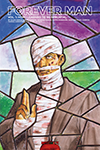
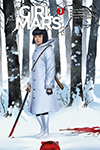
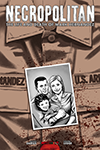
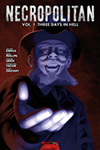
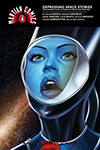
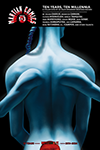
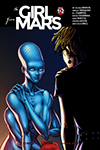

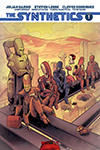
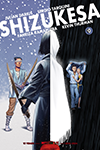
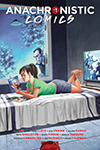
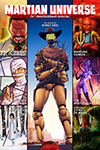
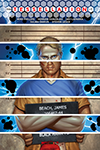
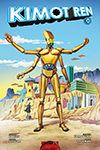
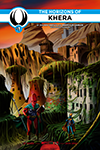
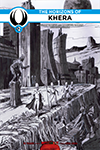
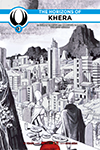
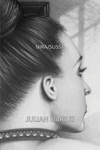
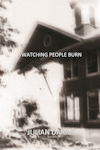
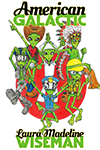
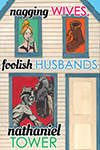
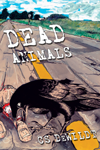
![One: Strain [of] Reflection One: Strain [of] Reflection](http://images.martianlit.com/images/CHILDHOOD4byJULIANDARIUS-e1340152944302-150x150.jpg)
